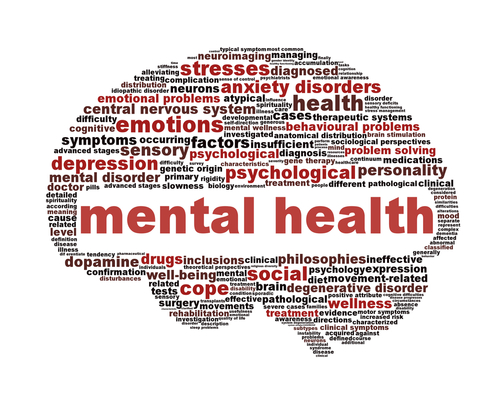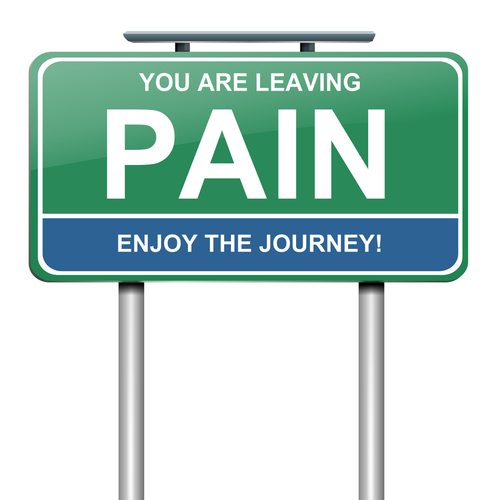
The majority of Americans are statistically likely to experience back pain at some point in their lives, and many may find that this develops to be a long–term issue. Check out the article below, which connects the dots between the correlation between stress and back pain.
We perceive pain to be a physical phenomenon, so we seek out a physical cause . Unfortunately, in doing so, we may be missing the most common reason for chronic back pain, and all other pain experiences, as well. During the last 50 years, we have learned that pain is not just a message from injured tissues to be accepted at face value, but a complex experience that is thoroughly tuned by the brain. The results are often strange and counter-intuitive, like quantum physics, but the science is clear: every painful sensation is 100% produced by the brain, and there is no pain without brain. So, does that mean can we think pain away? Just how much power does the mind have over pain? Can confidence and education cure?
Dr. Sarno and TMS
Dr. John Sarno, M.D., a professor of physical medicine and rehabilitation at New York University, began developing a theory more than a decade ago, on the cause of back pain he has termed “Tension Myositis Syndrome” (TMS). Although these ideas may have begun nearly 200 years ago, Dr. Sarno’s theory is that psychological and emotional factors can cause a physical change in the body that results in back pain.
 Often, these psychological and emotional issues are not easy to identify as they can reside deep in the subconscious. Therefore, we are quick to diagnosis the pain as a physical abnormality and look for a physical cure. But even with our great medical advancements, how many people never seem to solve the problem of their back pain? Dr. Sarno is helping to bring forth the understanding that the pain may come from a psychological source. And the reason the pain can persist for so long is that we get stuck in a pain cycle:
Often, these psychological and emotional issues are not easy to identify as they can reside deep in the subconscious. Therefore, we are quick to diagnosis the pain as a physical abnormality and look for a physical cure. But even with our great medical advancements, how many people never seem to solve the problem of their back pain? Dr. Sarno is helping to bring forth the understanding that the pain may come from a psychological source. And the reason the pain can persist for so long is that we get stuck in a pain cycle:
- — We unnecessarily limit our daily activities due to fear of the pain reoccurring or worsening.
- — This fear may be made worse by friends and family treating us as fragile, telling us to “take it easy.”
- — Similarly, we may have doctors who encourage limitations, give us a physical diagnosis, prescribe medications, etc.
- — This severe inactivity leads to muscle weakening and physical de-conditioning, which of course, will lead to more back pain.
- — More pain will equal more fear, which leads to greater inactivity which can also lead to social isolation, depression and anxiety.
 So how can we get out of such a cycle?
So how can we get out of such a cycle?
According to Dr. Sarno, TMS begins with emotional tension. We push this tension (or oftentimes anger and rage) out of the mind and into our unconsciousness. This unconscious tension can physically change our nervous system, oftentimes meaning a constriction in blood vessels. This constriction will limit oxygen supplied to the soft tissues, including the muscles and nerves, in our back. This then leads to back pain.
To diagnose TMS, a patient should start with a thorough physical examination. This can usually rule out the more serious structural back problems. But when there are common findings such as a bulging, degenerative, or ruptured discs, the doctor and the patient should not simply stop there with the diagnosis. In fact, Nick Sinfield, author and physiotheraptist, talks much about how these are actually very normal and natural occurrences in our spine: “Our discs often wear out by the time we are 20. It’s a perfectly normal and harmless part of the aging process, and an inevitable effect of gravity.” He goes on to argue that in the majority of these cases, these structural abnormalities do not cause any pain at all.
So once a serious structural problem is ruled out, Dr. Sarno defines the characteristics of TMS as back or neck pain, muscle tender points, sleep disturbance and fatigue, and in many cases, Dr. Sarno says patients describe the pain as “moving around.” He says the symptoms are similar to those found in fibromyalgia.
The first step in the treatment for TMS is acknowledgment. Acknowledging that the pain is not physical in nature, but rather is psychological. Once we can accept and understand that, we can seek psychological treatment to help us root out the anger and tension that is residing in our unconscious.
Multi-disciplinary Treatment
 This type of treatment for stress-related back pain is similar to Dr. Sarno’s but includes a broader approach. Whereas in Dr. Sarno’s theory, we might only focus on emotional health, especially that in the unconscious, the multi-disciplinary diagnosis includes possible contributions from four main areas:
This type of treatment for stress-related back pain is similar to Dr. Sarno’s but includes a broader approach. Whereas in Dr. Sarno’s theory, we might only focus on emotional health, especially that in the unconscious, the multi-disciplinary diagnosis includes possible contributions from four main areas:
- Physical: de-conditioned and weak muscles, nerve irritation, etc.
- Emotional: depression, stress, anxiety, anger, etc.
- Cognitive: negative thoughts, feeling of hopelessness, etc.
- Environmental: financial problems, work or family issues, etc.
Naturally, the treatment is also four-pronged, and addresses each of the areas individually. This has been a very successful treatment process over the last two or three decades, and it’s success greatly depends on the motivation of the patient to thoroughly explore each of the areas.
The biggest takeaway from looking at these two approaches to back pain, is that we cannot and should not look exclusively for a physical solution. We are quick to proclaim our back as weak or fragile, yet we are reticent to seek psychological help for fear of appearing emotionally weak. Just as inhibiting as chronic back pain can be in our daily lives, so to is the degree of freedom and happiness we feel when we are in full physical and emotional health.
*These theories are certainly well outside the mainstream of medicine. It should be emphasized that medicine provides the answers to pain problems for many who suffer.
This article originally posted on LaJollaLight.com.







